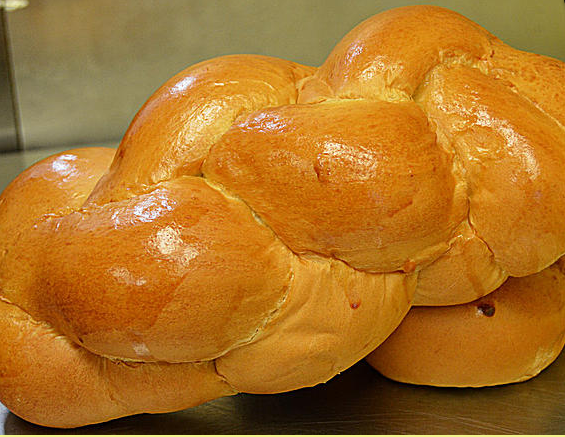Internet Archeology
Kosher Food – Avoiding Forbidden Substances and Combinations
What do we know about Kosher Food at Kosher Bread Pro ? We know it’s a hot topic for Kosher Baking.
About Kosher Food
Keeping kosher means that one follows the Biblical law regarding foods permitted to the Jewish people. An earlier article listed which species of living things are permitted. It also described the slaughtering method, shechita, the only way flesh of acceptable animals and birds is ever allowed.
This article is about two more aspects of keeping kosher:
1) Forbidden parts and 2) forbidden mixtures (of otherwise permitted foods).
Forbidden Parts – a) animals and birds. Immediately after slaughter the animal is checked for signs of disease. If there are none the following must be removed:1)Certain fats and entrails. 2) the sciatic nerve and 3) all blood. Except for the blood all of them can be eliminated with a knife by a trained expert. Removing blood is more complicated. It must be done shortly after slaughter. After the blood veins have been removed, the cuts of meat are soaked in cold water and then sprinkled with coarse (koshering) salt. The salt draws the blood to the surface to be washed away. The meat is then soaked a second time. All of this is usually done at the slaughterhouse or butcher shop.
Note: Consuming any amount of blood is a serious violation of Jewish law. As a kosher consumer there is a specific occasion when you may be unprotected from this violation. That is when you purchase fresh unprocessed liver. The blood of liver is not always removed at the slaughterhouse or by your butcher. Blood cannot be extracted from liver by the usual salting method because of the volume of blood. Liver must be broiled over a flame to be made kosher with all blood removed. This is often left to the end user. If you don’t know how, consult an Orthodox rabbi or see below.
b) Eggs – The general rule is that a food is kosher if it’s source is kosher. A chickens egg is kosher; a robins egg is not. Blood spots disqualify any egg. Crack and check each egg separately and discard if you find a blood spot.
c)Milk – All milk looks alike and so the user must be assured that the source animal is a kosher animal. In North America government regulation can substitute for a Jewish inspection agency for milk. Elsewhere it is needed. This is called Cholov Yisroel – Jewish milk and is also available in North America.
d) Wine – All wine must be produced by Jews to be kosher. As wine was commonly used for idol worship, a severely forbidden activity, Talmudic law prohibits wine contacted at all by anyone who may even think of serving idols. Be very sure that your wine is kosher.
e) Israeli Produce – Before you buy foods grown in Israel you will need further information beyond the scope of this article. Some Israeli produce has parts that must be removed; some at times is altogether forbidden.
Forbidden Mixtures – A central aspect of keeping kosher is separating meat and milk. Milchig (dairy) and fleishig (meat-y) cannot be eaten, cooked or used together at all.
(Less well known is the fact that meat and fish are not combined either.) This prohibition is the subject of as large body of literature in Jewish law.
I have written a separate companion article covering the major aspects of this part of keeping kosher. The current article only summarizes the foods and mixtures forbidden by Jewish law. To be sure that you are eating or providing others with kosher food, you need more information and a knowledgeable mentor.
About the Author: Leslie Rosenberg has a long-standing professional involvement in the kosher food industry. He has extensive knowledge of the Jewish dietarylaws and of kosher certification practices.
Visit http://the-definition-of-kosher.com/ for expanded information and all the necessary resources to know that you are keeping kosher according to the original Biblical law.
Source: www.articlecity.com


